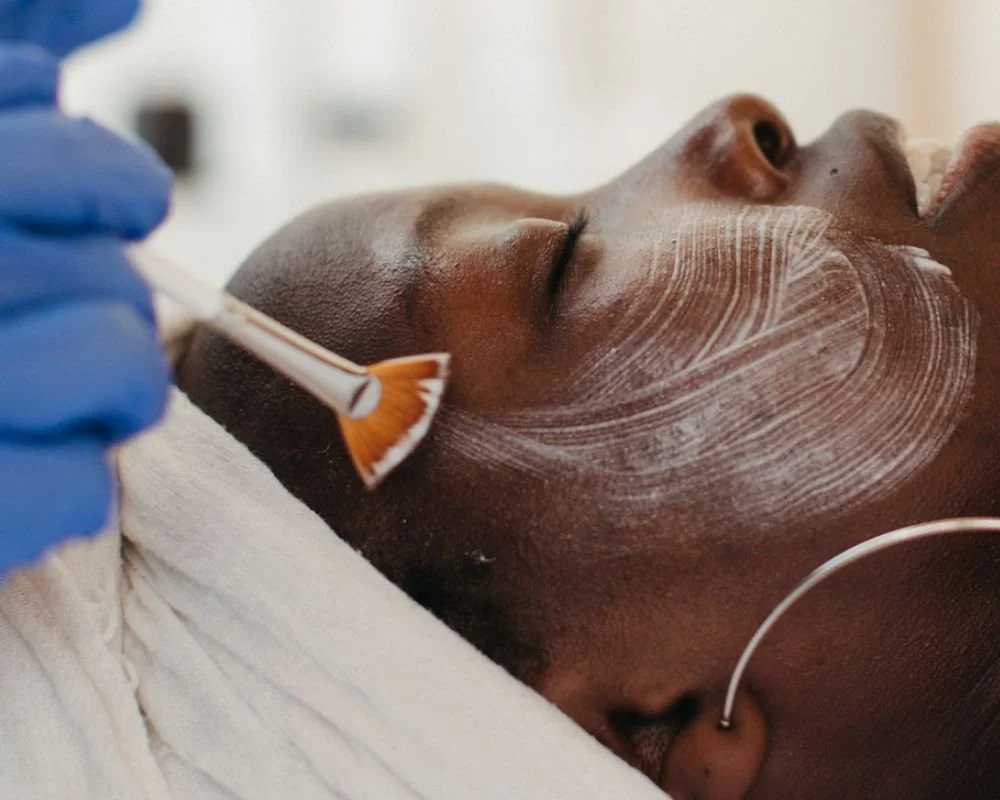What Is Hyperpigmentation, What Causes It, And What Can We Do About It?
We all want glowing skin, but hyperpigmentation seems to be at the top of mind for a lot of us, especially after spending a bit too much time in the sun. It is the thief of overall radiance and can present as dark spots, freckles, age spots, and most commonly - post-inflammatory, hyperpigmentation. The answer? Well, thankfully, there are a few options.
Hyperpigmentation is caused by an increase in melanin, the natural pigment that gives our skin, hair and eyes their color. Think of “hyper” as more, and “pigmentation” as color. That light brown mark left on the surface of your skin after a breakout? That’s the result of melanin being spilled out as your skin cells attempt to heal that area of trauma. It can also present as brown, tan or black spots, and sun exposure can make these spots more pronounced. Other causes include adrenal disorders, hormone changes, sun damage, as well as some medications.
Another well-known type of hyperpigmentation is Melasma. Quite common in people of color, women more so than men, and also tends to happen quite often during pregnancy and the postpartum period. There is a hormonal surge during pregnancy and an increase in pigmentation in the dermis. Melasma can be quite difficult to treat and should be properly assessed by a dermatologist as well as an experienced aesthetician to see what treatments can help to reduce its appearance.
What can we do about Hyperpigmentation at Park?
Sunscreen
If there’s anything you take from this, it should be that sunscreen is an absolute must. A good quality SPF with UVA & UVB protection of at least 30 or higher will not only help to prevent any new hyperpigmentation from forming but can also treat and protect the pigmentation you may currently have. You can spend hundreds of dollars on creams, serums and complex treatments, but skipping sunscreen is absolutely essential to seeing, and keeping, the results you want.
Including antioxidants in your skincare regimen
Hyperpigmentation pathways are ultimately triggered by free radicals, which are generated by things like pollution and UV exposure.
High-quality, stable Vitamin C, Niacinamide, and Retinoids are powerful ingredients that combat those free radicals that can help prevent and treat any current hyperpigmentation.
Chemical Peels
Some Park Medical treatments can help to even the tone in areas of the skin and reduce the appearance of hyperpigmentation, such as a chemical peel tailored to your skin type. Peels work by resurfacing the skin and can also address fine lines and wrinkles. A consultation with an experienced esthetician can help determine which peel would work best for you.
IPL (Intense Pulsed Light)
IPL is a great option for fading brown pigment, such as sun spots, or freckles. It can also target redness associated with Rosacea. IPL works to target the cells that contain excess pigment, pushing it to the surface of the skin where it then sloughs off. It can take anywhere from 3-6 treatments to see long-lasting effects. There are, however, some limitations. For those with deeper skin tones, or if you find that you easily burn in the sun, IPL may exacerbate or have the opposite effect on hyperpigmentation. At Park, we offer Lumecca, a top-of-the-line treatment that uses a higher peak power than other IPLs on the market.
At Park, we offer a 30-minute consultation to assess your skin and help guide you in figuring out what treatment would work best for you and get you to your glowy skin goals.
Want to tackle hyperpigmentation with the help of a Park skin expert?



